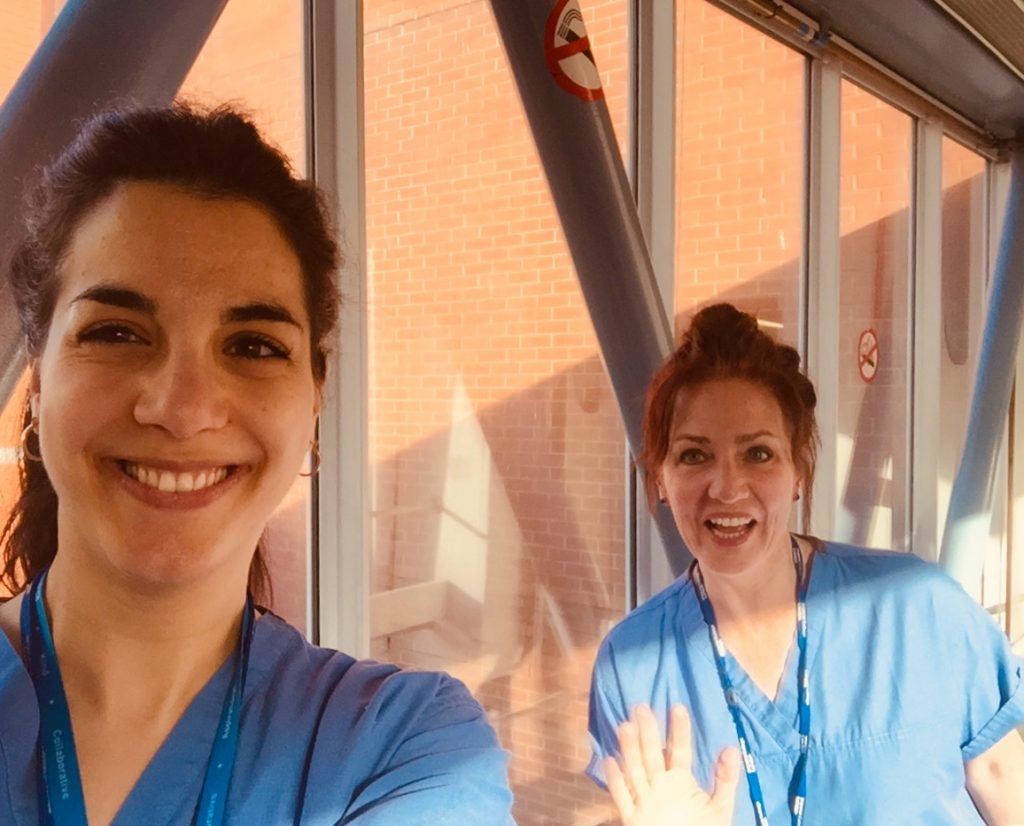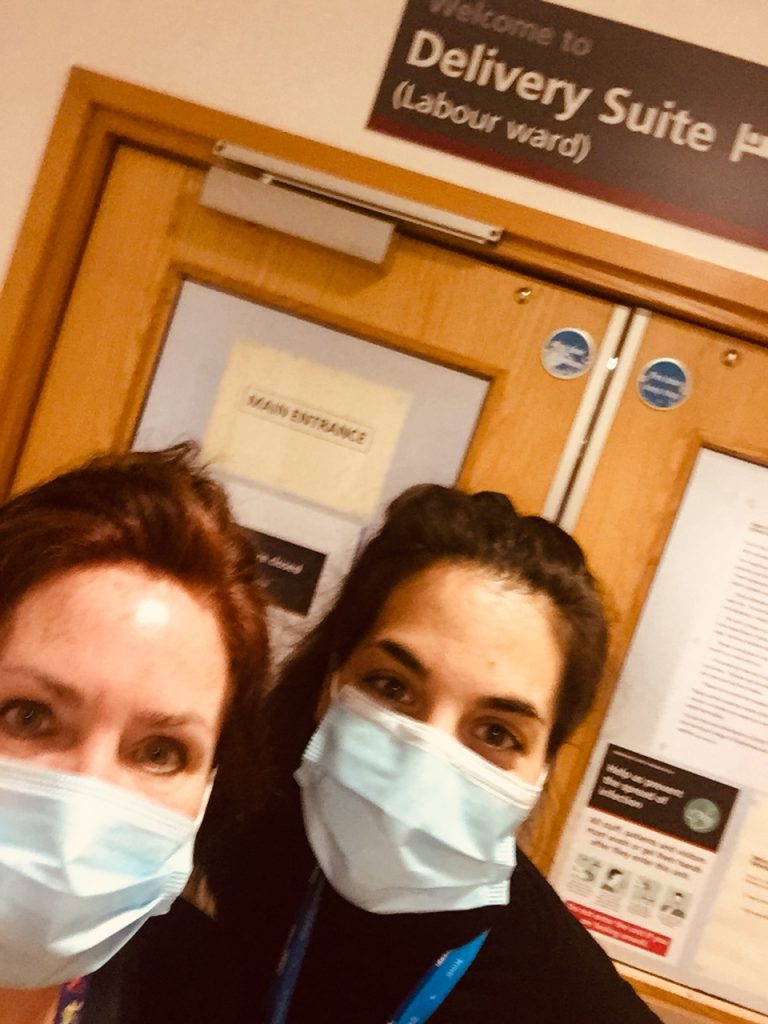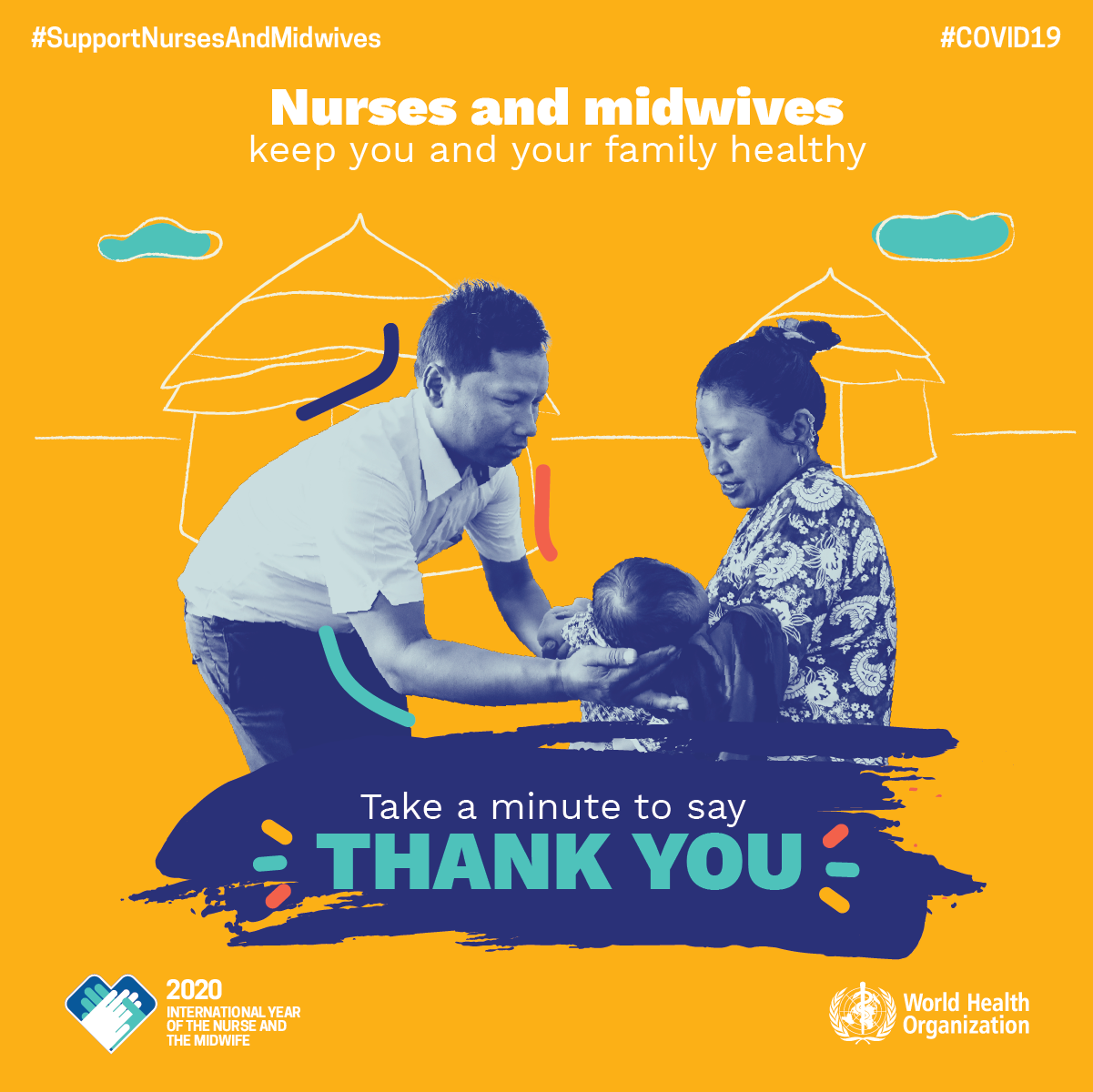This World Health Day, Alison Perry shares her experiences as a research midwife returning to the front line of clinical care during the COVID-19 outbreak. #SupportNursesAndMidwives

My name is Alison and I’m the Lead Research Midwife and manager of the Women’s Health Research Centre at Imperial College. My work is at the intersection of health and science and COVID-19 has hit this space like a bolt.
I lead a team of research clinicians (including many midwives) and support a portfolio of clinical research related to reproductive health and childbirth. Since the outbreak, most of that research is on hold. During the pandemic, we’re focusing on holding the team together, supporting some essential clinical services in prematurity, supporting COVID-19 research/registries, and helping colleagues into NHS volunteer positions. I’m also returning to Labour Ward to lend some of my time, my hands, and my midwifery skills.
Being able to work on Labour Ward and fill some of the gaps that are appearing is easy for me. It’s more than easy, it’s an obvious thing I am able to do, so, I do this without hesitation. I became a midwife in order to be useful anywhere in the world and I feel useful in our response to the pandemic. The immediacy of caring for women and their babies during childbirth eliminates a lot of the wider context too; the science, the politics, the globe, and the pandemic. Birth doesn’t care about the pandemic. In that way, midwifery has provided me with some unexpected moments of mindfulness and a time out from the dizzying dance of pandemic pandemonium that is everywhere else.

I hadn’t worked on a labour ward in recent months but by dipping my toe back in at Queen Charlotte’s, I have been able to quickly recognise the same rhythms, reasoning and readiness that all labour ward settings have. The innovation and team approach that I’ve seen at Imperial is heart-warming stuff. The professional learning curve is steep but stimulating. A labour ward is a great leveller with midwives and doctors being organised moment-to-moment around an unorganisable beat, the big boss of it all: Birth. There are two bosses now.
This pandemic has forced a rapid re-design and re-deployment across all maternity services. The format of social platforms and maternity health systems have scrambled to adjust to COVID-centric designs. But you cannot redesign birth. There will never be 3, 2, or even 1- metre distancing built into the format of birth. And so, it goes that the very core of midwifery and birth remain much the same. Part of me would like to paint a picture of virus-proof, wiped-down, slick alternative ways to facilitate birth, but of course, I can’t. The landscape of birth is changed. There are now no families around and services are stripped back, but birth is still birth.
Some midwives being called to the front line may not have worked in clinical settings for a while. The unwritten moral imperative to down tools and step-forward can cause anxiety. One research midwife suggested that for some midwives in clinical research, they may have left the front line because it was not a satisfying or supportive place to be. The over-stretched, under-acknowledged, under-invested, under-appreciated setting of general maternity is well-known and, for some midwives, evokes trepidation. During a global pandemic, all of this is compounded.

For some, being redeployed to the frontline is rife with uncertainty and sometimes deep anxiety. Clinical colleagues have considered their mortality and frank chats about death have been a part of my week. For those stepping into the fray, it is difficult to format a way of being in the front line that feels entirely sound or safe. It requires more of a leap. Also, regardless of clinical background, colleagues working across London have felt general frustration with the lack of personal protective equipment (PPE) available and total absence of staff testing.
Testing, to me, has always been the way to do all of this well. Testing of midwives and staff would not only help to inform and maintain the staffing of the service, but there is also a basic power in knowing that you have it, had it, or haven’t had it, yet. In the absence of effective PPE, the knowledge of one’s immune status could play a big protective role for the wellbeing of midwives, so that encouragement to ‘step up’ could, at least, include for each midwife their own personal protective knowledge. Lack of testing also breeds guilt among some clinicians. Even for those of us keen and confident to help, our feelings around participation are complicated by not knowing. The idea that we could unwittingly bring COVID-19 into a clinical setting weighs heavy on minds.
There is so much that is unknown.
None of this should require bravery though, just a well-packed bag, of sorts, that many midwives feel should have been readily available to us in this comparatively resource-rich setting. Afterall, it isn’t the case here that someone is keeping our stash of test kits and PPE locked up. Rather, it seems more of a particular societal approach to health that lacks deference to public health and preventative strategies that lands us where we are now.
The world in which babies are born, in which women become mothers, and in which midwives support women is arguably already changed forever by this. As the pandemic evolves, the balance of my time will continue to tip toward clinical midwifery. Over the course of International Year of the Nurse and the Midwife 2020, we will find our individual and collective ways through this pandemic. However, I hope that COVID-19 will have contributed to a redesign of the landscape. I’d like to be able to look back at the pandemic and see it as a game-changer for many things, including fundamental improvements to midwifery and women’s health. When many things are out of reach, change itself is not.
Written by Alison Perry
About the author
Alison Perry is an NIHR Pre-doctorate Fellow and the Lead Research Midwife and Manager at the Women’s Health Research Centre, Imperial College London. Alison is also undertaking a placement with the Patient Experience Research Centre to gain expertise in involving women and members of the public in research to guide her ongoing research plans.

